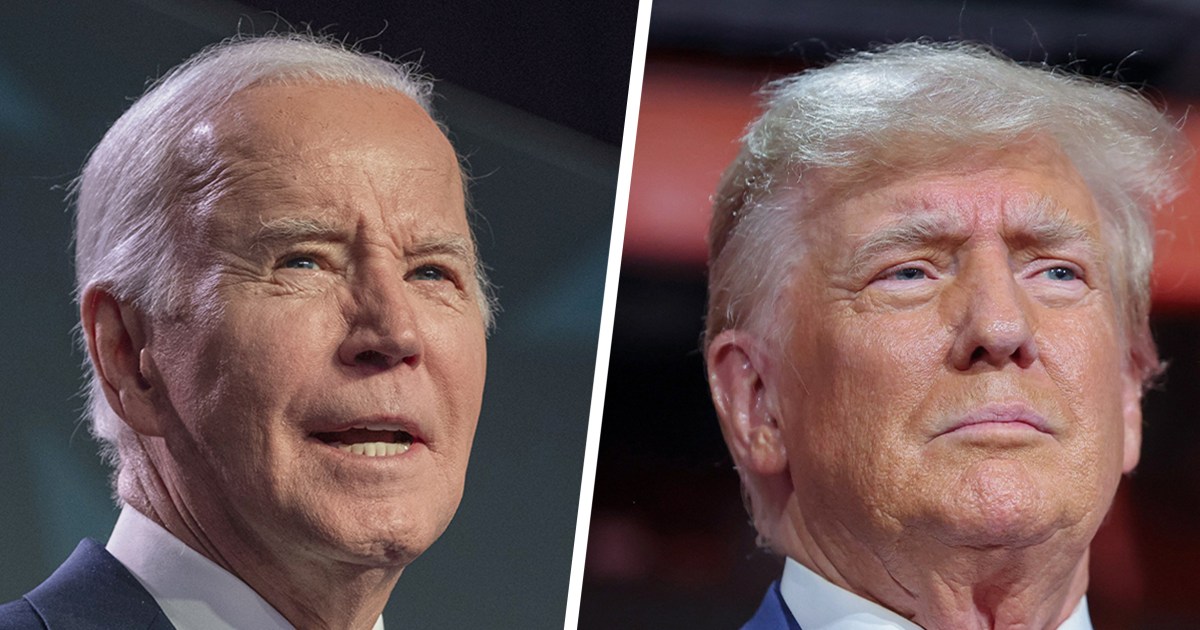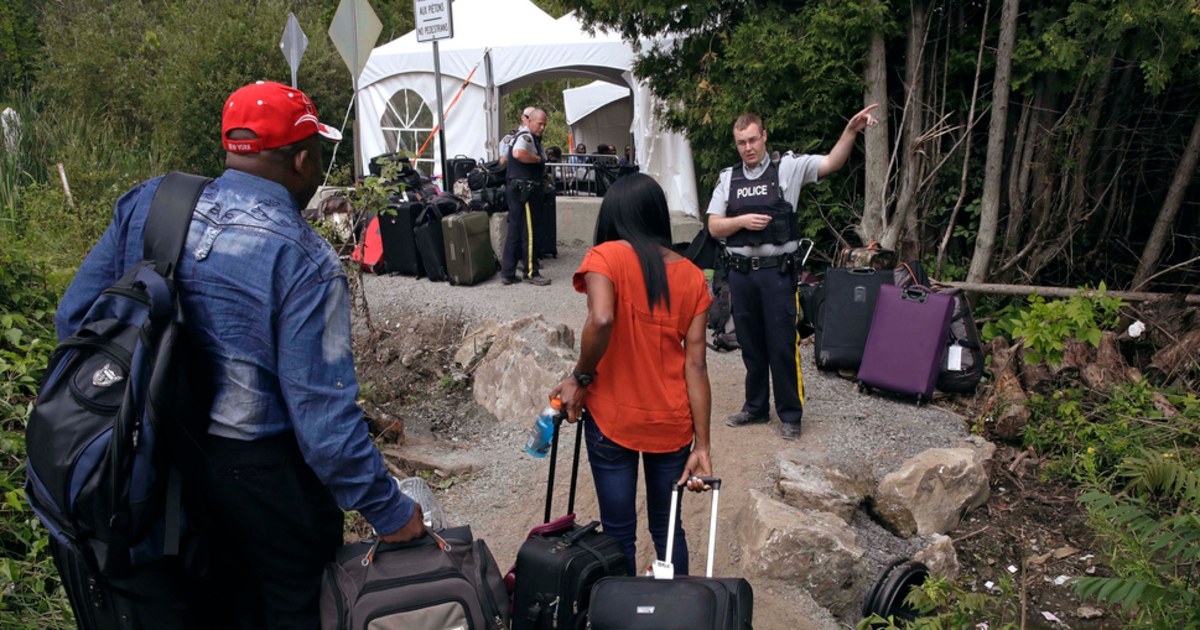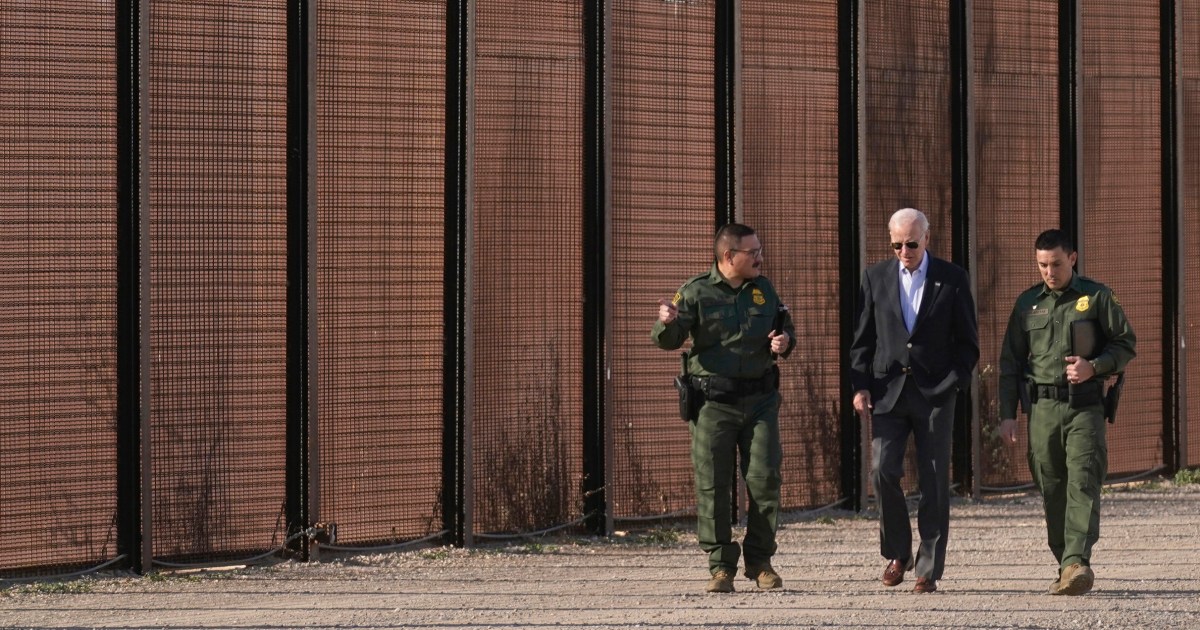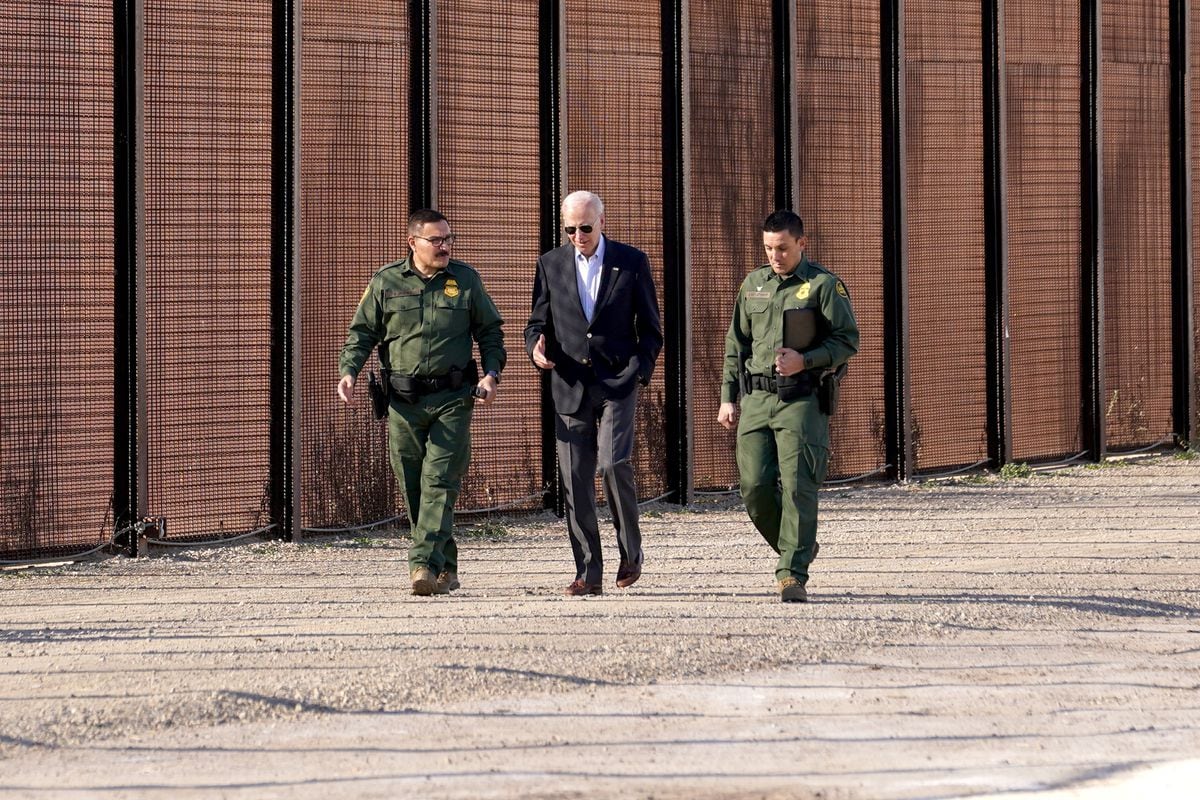Before it was the wall, today it is fentanyl.
Amid a deep public health crisis, the radical wing of the Republican Party has made a synthetic drug the cornerstone of its strategy ahead of the 2024 election. Cheaper, deadlier and harder to detect, fentanyl is being has established itself as the new protagonist of the war against drug trafficking and of the lawsuit between the most conservative sectors of the United States and the Mexican government in recent weeks.
From the perspective of Trumpists and hard-line politicians, Mexico is the one to blame for the epidemic, the one that does not do enough, the one that protects and embraces the cartels.
It is the new piñata from which they seek to get a political slice.
On the other side of the border,
President Andrés Manuel López Obrador does not intend to remain with his arms crossed and has no qualms about ridiculing and denying the accusations.
He has even mobilized the largest consular network in the world to counterattack and convince millions of voters not to vote for candidates who espouse an anti-Mexican discourse.
As with Donald Trump and the border wall, Republican leaders like Ron de Santis, the Florida governor and presidential hopeful, have blamed immigrants for drug trafficking.
“We have people crossing illegally from every country in the world.
And what has that brought us?
Now the leading cause of death among people ages 18 to 45 is fentanyl overdoses,” De Santis said last year.
53% of Americans agreed that there was an "invasion" of the southern border and 39% said that most of the fentanyl in the United States was trafficked by illegal immigrants, a percentage that rose to 60% among Republicans even though it's a false claim, according to an Ipsos poll from last August.
“If they do not change their attitude and think that they can use Mexico for their propaganda and political purposes, we are going to call for them not to vote for that party,” López Obrador warned last March.
The friction between the two countries due to insecurity is permanent, but the latest dispute was forged at the beginning of March, when it was announced that four Americans had been kidnapped in the border city of Matamoros.
Two were found dead, one wounded and one safe.
Criticism of the Mexican government's security policy ended up resurrecting the proposal that the United States declare drug cartels terrorist groups, which would allow the Joe Biden government to undertake military operations outside the borders of its territory.
The idea was not new.
It was tossed around and dismissed as a possibility during the Barack Obama and Donald Trump Administrations.
But, little by little, it gained strength among the most conservative groups of the Republican Party.
At first it was easy to dismiss as an outlandish proposition with no prospect of success: for the US military to attack fentanyl labs and traffickers in Mexico, with or without the permission of the Mexican government, to fight a scourge that in 2021, it claimed the lives of tens of thousands of people in the US. The premise was clear: Washington had to take justice into its own hands.
"All we want is to finally stand up to the powerful criminal groups that terrorize the Mexican people, bribe and threaten Mexican politicians, and poison Americans."
Although it was initially ruled out by the Biden government, López Obrador made it clear that the proposal was unacceptable and outside international law.
“What do these mean, interventionist, arrogant think they are?
Mexico is respected," the president reversed.
As an old political wolf, the Mexican president took advantage of the criticism to open a margin and launch his own.
First, against the Republicans, to remind them that the country "was not a protectorate or a colony of the United States."
Later, despite assuring that bilateral relations were in good health, he launched himself against the role played by agencies such as the DEA and the State Department in Mexican territory with statements such as "Mexico is much safer than the United States", "Here fentanyl is not produced” or “No country fights trafficking like Mexico”,
Dan Crenshaw, a member of the House Homeland Security Committee, in 2020. POOL (Reuters)
The Mexican government stretches the league under the premise that the White House cannot afford to cut off cooperation with its neighbor and that it is time for the United States to recognize its responsibility in the problem, as the world's leading drug consumer.
Despite all the lip service, a diplomatic rupture is still unlikely both due to the interdependence between the two countries and a world context characterized by the Russian invasion of Ukraine and tensions with China.
The consumption of fentanyl in Mexico is minimal and, furthermore, the notion that the claims are unfair is widely accepted in the country.
The idea, however, is gaining popularity among the Republican ranks, supported by the real threat that fentanyl represents to American society.
The DEA calls this synthetic opioid, legally used in pain treatment and anesthetic, "the deadliest drug threat our nation has ever suffered."
The impact is palpable.
The Centers for Disease Control and Prevention (CDC) announced at the end of 2022 that life expectancy in the US had fallen to its lowest level in two decades, partly due to the increase in overdose deaths: those who died from the use of that substance were mostly under 40 years of age.
It is so easy to hide that it is trafficked camouflaged in vehicles, in suitcases and among the clothes of those who cross it.
DEA agents seized in 2022 of 14.
Republican politicians have already made fentanyl trafficking one of their big election issues.
Its bases perceive this drug as the greatest threat to public health.
37% of their voters indicate so, according to an Ipsos survey published in February.
But attitudes towards illegal trafficking are crossed by partisan identities, only 17% of Democratic supporters share that vision.
As that perception of threat grows among his voters, the idea of forceful measures finds more acceptance among Republican politicians.
The path of military intervention is becoming a political priority in that party, including congressmen and presidential candidates in the 2024 elections. Former President Trump, the long-distance favorite in the Republican race, privately supports the idea, according to the
Rolling Stone
magazine
.
Legislators such as the very Trumpist Marjorie Taylor Green, congresswoman from Georgia, or Beth Van Duyne, from Texas, have publicly spoken in favor of it.
So has GOP White House hopeful Nikky Haley, who visited the border last week and called for special forces to be sent to Mexico to deal with cartels "like we did ISIS."
"The Mexican president is told: either you do it, or we do it."
Another candidate for the Republican nomination, billionaire Vivek Ramaswamy, has tweeted for his part that the US president, “Biden sits in the White House and follows the fentanyl crisis as if he were a bystander.
I will use our army to annihilate the cartels”.
Since the year, a report by a Trumpist-ideological
think-tank
has also been circulating advocating a formal declaration of war against the cartels, in response to "the ever-growing pile of corpses of Americans killed by fentanyl poisoning."
The author of the text is Ken Cuccinelli, the former top immigration official during the Trump era, who now supports the possible electoral campaign of the governor of Florida, Ron DeSantis.
In the House of Representatives, lawmakers Dan Crenshaw of Texas and Michael Waltz of Florida have introduced a bill that would authorize the use of military force in Mexico.
In the Senate, South Carolina's Lindsey Graham and Louisiana's John Kennedy have introduced their own proposal to “authorize the armed forces to attack these organizations (the drug cartels and distributors) wherever they may be.” be”.
William Barr, a former attorney general with Trump, has also championed the proposal in an editorial published in
The Wall Street Journal
.
Graham has assumed the leadership of the anti-Mexican crusade in recent weeks, taking advantage of the appearances in the Senate of Cabinet members such as Antony Blinken, the Secretary of State, and Alejandro Mayorkas, the head of Homeland Security.
“We have to take off our gloves.
They are at war with us, we have to go to war with them”, he told Mayorkas last week.
Under heated questioning, Blinken conceded that there were parts of Mexico under drug control, but commented that designating the cartels as terrorist organizations "would not provide any new tools."
The White House has also spoken in similar terms.
“The cartel threat is not a problem that needs a few high-precision guided projectiles, or one that is solved simply by changing the name of your legal status,” says Kimberly Breier, of the CSIS think tank and former senior administration
official
. of Obama.
Breier adds that while the proposals that have been circulating are politically profitable, especially in light of the incipient presidential campaigns, they "misdiagnose the nature of the problem and will do little to resolve it."
In the midst of the exchange of accusations with López Obrador, US diplomats and legislator delegations have visited Mexico to keep the dialogue between the two countries open.
Based on these exchanges, the Mexican president released a letter this week asking his Chinese counterpart, Xi Jinping, to combat illegal trafficking "for humanitarian reasons."
"The United States must face its own problems," the Chinese government responded.
Beijing condemned the interference in the sovereignty of Mexico, but stressed that it was not going to assume any responsibility as the epicenter of drug manufacturing.
The DEA claims that Mexico and China are the main sources of the fentanyl consumed in the United States.
The forecast of most analysts is that far from stopping, the Republicans will continue to stir up the electoral piñata of “Mexican fentanyl”.
López Obrador has not shown signs of backing down either.
Nothing is new: neither the tensions nor the reproaches nor the exaggerations.
Ultimately, it remains to be seen what the balance will be in the communication and work channels between the two countries, in light of the pounding of nationalist discourses initially branded as "for internal consumption", but which have become increasingly uncomfortable in the bilateral relationship.
The reading of those implications may change radically next year, when new presidents are elected on both sides of the border.
subscribe here
to the EL PAÍS México
newsletter
and receive all the key information on current affairs in this country

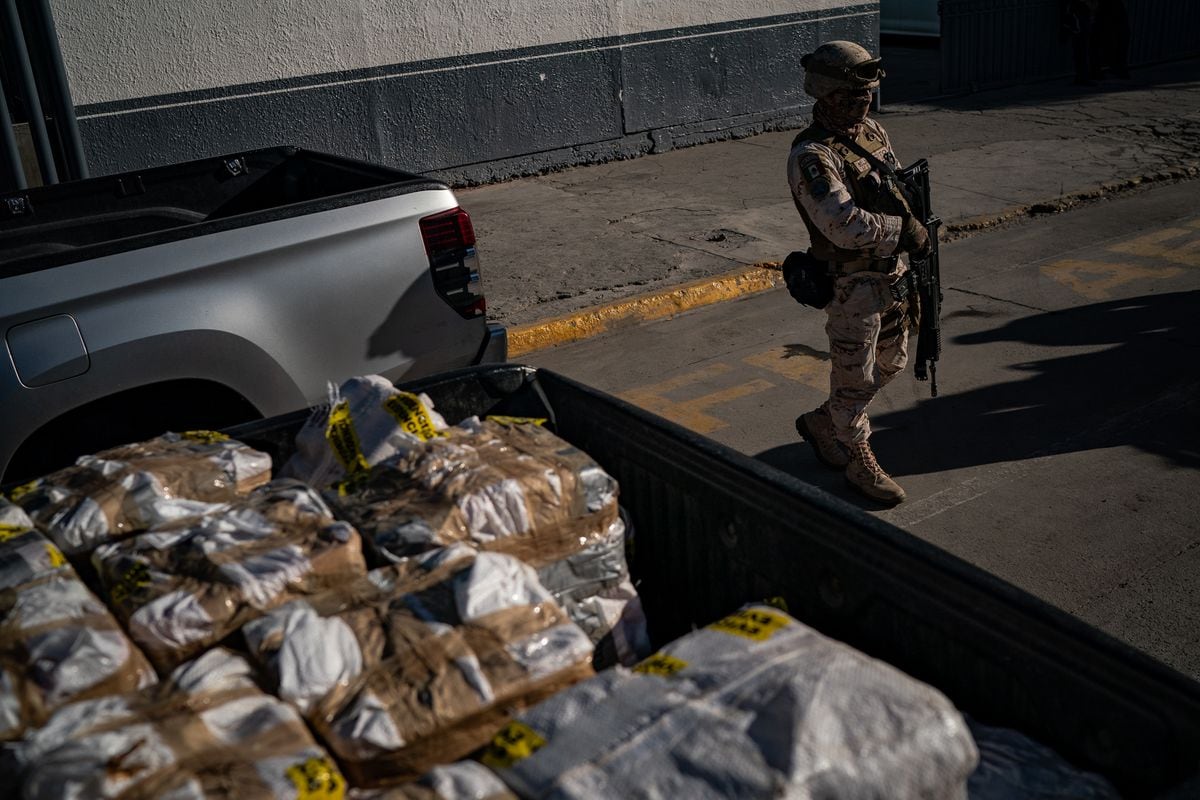
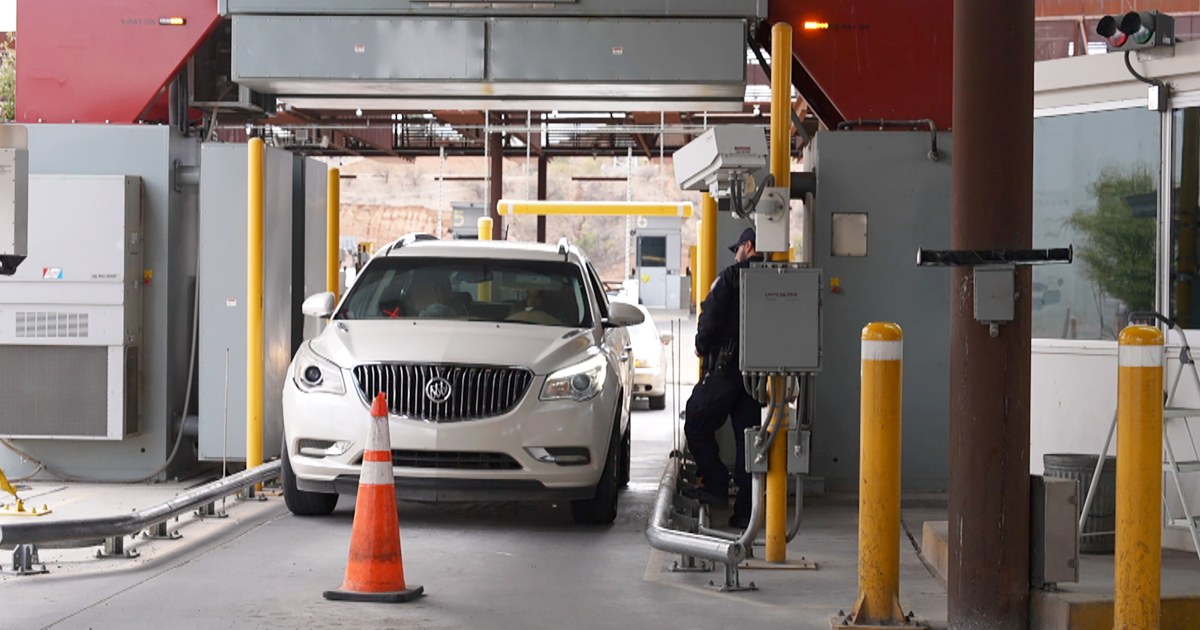
/cloudfront-eu-central-1.images.arcpublishing.com/prisa/RULPYNDV5FMFMTRM6OUNH3K3BY.jpg)
/cloudfront-eu-central-1.images.arcpublishing.com/prisa/BS6KLR7HWVHDBPE2NL7LDTVNKE.jpg)

